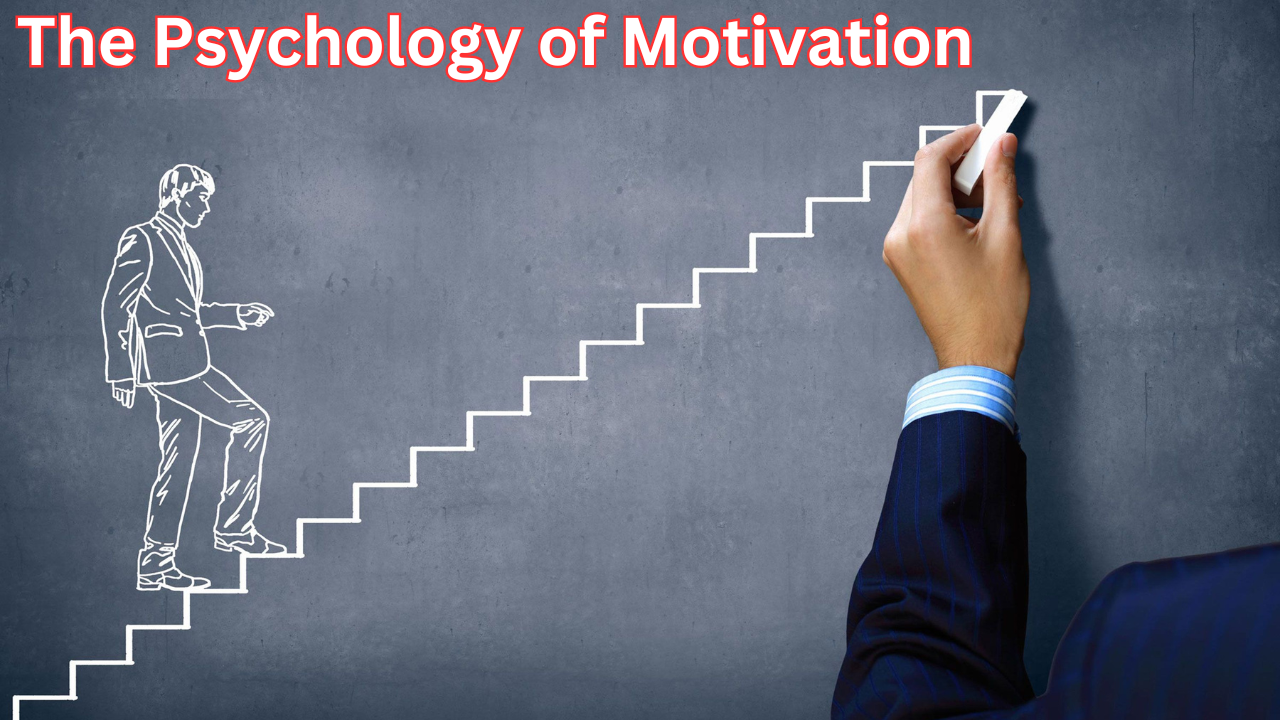Our behaviors choices and actions are primarily driven by motivation a basic feature of human psychology. What motivates us to work toward our objectives overcome obstacles and succeed is an inward process. Gaining knowledge about the psychology of motivation can help us understand what drives us and how to channel this energy into successful lives. Driven by the desire to succeed professionally uphold wholesome relationships or experience personal development motivation is a vital factor in determining our actions.
In this article, we will explore the different types of motivation, the psychological theories behind it, and practical strategies for boosting motivation in your day-to-day life.
Types of Motivation:
Motivation can be mainly categorized into two types: intrinsic motivation and extrinsic motivation.
- Intrinsic Motivation:
Self-satisfaction curiosity or the desire for mastery are the three main sources of intrinsic motivation. An activity is something you do because you find it interesting fun or personally fulfilling when you are intrinsically motivated. Painting enthusiasts for instance might create only out of pure artistic joy and never seek out outside validation.
Positive traits like creativity perseverance and well-being are frequently associated with intrinsic motivation. Individuals who are driven by internal motivation are typically more concerned with their development and betterment than with receiving approval from others.
Extrinsic Motivation:
Conversely, extrinsic motivation is motivated by benefits or results from outside sources. Money recognition accolades and awards are a few examples of these. When you act with extrinsic motivation your goals are to accomplish a particular outcome or stay away from unfavorable outcomes.
Although extrinsic motivation can work well in the short term long-term satisfaction might not result from it. Sometimes the intrinsic interest in an activity can be reduced by relying too much on external rewards. Extrinsic motivation however can still be a very effective strategy especially when there is a lack of initial motivation.
Both kinds of motivation are important in our lives and knowing when and how to use each one will help you reach your short- and long-term objectives.
Psychological Theories of Motivation:
Numerous important psychological theories clarify the intricate workings of motivation and behavior in people. Gaining a deeper understanding of these theories can help us better understand motivation and how to use it.
- Maslow’s Hierarchy of Needs:
Maslow’s Hierarchy of Needs one of the most well-known theories of motivation postulates that a hierarchy of needs governs human motivation. These needs are grouped in a pyramidal fashion with the most fundamental needs at the base and more complex needs at the top.- Physiological Needs: Basic survival needs such as food, water, and shelter.
- Safety Needs: The need for security, stability, and protection.
- Love and Belonging: Social connections, friendships, and relationships.
- Esteem: The need for self-respect, recognition, and achievement.
- Self-actualization: The desire to achieve personal growth and fulfill one’s potential.
Maslow asserts that before addressing higher-level needs people are driven to attend to their basic needs. When basic needs are met people are inspired to work toward their growth and self-fulfillment.
- Self-Determination Theory (SDT):
- The theory of self-determination places significant emphasis on the role that autonomy competence and relatedness play in motivation. According to this theory, people are most motivated when they believe they have autonomy competence, and relatedness—the ability to succeed and feel connected to others.
SDT explains the potency of intrinsic motivation. Individuals who have a strong sense of agency and self-belief are more likely to engage in deep learning and maintain their motivation over time.
- Expectancy Theory:
The relationship between effort performance and outcomes is the main focus of Victor Vroom’s theory of expectation. This idea contends that people are driven to take action when they feel their efforts will produce the intended performance and that the performance will have a positive consequence.
The expectation that one’s efforts will result in a promotion bonus or other reward motivates employees and expectation theory is frequently used in work environments. The incentive to perform is higher when the relationship between effort and reward is more evident.
Strategies for Boosting Motivation:
Maintaining focus and accomplishing your objectives requires increasing motivation, particularly in the face of setbacks or a lack of inspiration. These useful methods can help you become more motivated:
- Set Clear Goals:
Our efforts will have direction if you set clear and attainable goals. Deconstruct more ambitious objectives into more doable smaller ones to keep moving forward and recognize accomplishments along the way. - Find Your “Why”:
Motivation can be increased by realizing the underlying motivation behind your objectives. When your motivation starts to wane ask yourself why the goal is important to you and remind yourself of it. - Create a Positive Environment:
Be in the company of positive upbeat people. Remaining focused and motivated is enhanced by a positive environment. - Reward Yourself:
Maintaining motivation is facilitated by praising and acknowledging minor successes. Giving yourself a treat after finishing a task is one easy way to reward yourself. - Build Habits: Retaining motivation requires consistency. When constructive behaviors become habits you become less dependent on willpower and more on routine to reach your objectives.
Conclusion:
Understanding the psychology of motivation is essential for unlocking your potential and driving purposeful actions. Whether motivated intrinsically by personal fulfillment or extrinsically by rewards, applying the right strategies can help you stay focused and achieve your goals. By learning what motivates you and using psychological insights, you can create a fulfilling and productive life, both personally and professionally.
